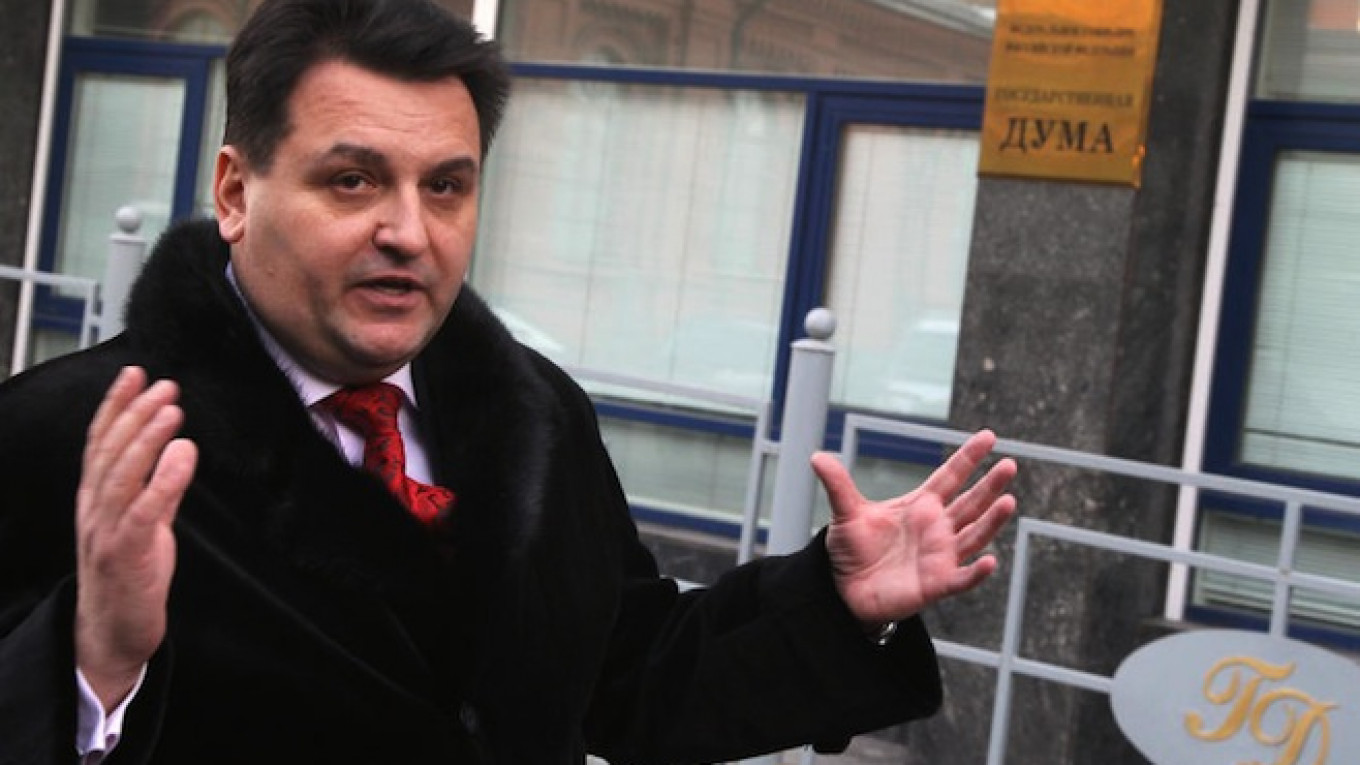Sexual favors rendered to steer an otherwise law-abiding official off course should be considered acts of bribery, as should a slew of other improperly motivated "services," a Russian lawmaker has proposed.
State Duma Deputy Oleg Mikheyev, of the A Just Russia party, submitted amendments to the Russian Criminal Code in a bid to significantly expand the scope of the criminal bribery.
Specifically, Mikheyev's bill proposed an expansion of the category to include any service rendered to a state employee to induce him or her to take a course of action illegal, Rossiiskaya Gazeta newspaper reported Tuesday.
Included on Mikheyev's proposed list of illicit services are: fine-dining experiences, vacations abroad, positive feedback given within earshot of an official's superiors, and sexual services, the lawmaker said.
"The Russian economy is losing hundreds of billions of dollars due to corruption. This represents not only direct losses to the government, but also business barriers that are created by officials. I believe this situation must be radically changed," the deputy said.
Services rendered to persuade an official to take illicit action should be punishable by fines ranging from 25 million to 500 million rubles ($670,000 to $13 million), Mikheyev said.
Russia ranks 127th out of 177 countries included in anti-graft watchdog Transparency International's 2013 Corruption Perceptions Index. Corruption has often been described by economists as among the main obstacles hindering Russia's economic development.
The Russian government has repeatedly launched anti-corruption campaigns, including through the introduction of laws clamping down on conflicts of interest among public officials.
Last year 1,500 government and law enforcement officials were indicted for corruption, according to Prosecutor General Yury Chaika.
A Message from The Moscow Times:
Dear readers,
We are facing unprecedented challenges. Russia's Prosecutor General's Office has designated The Moscow Times as an "undesirable" organization, criminalizing our work and putting our staff at risk of prosecution. This follows our earlier unjust labeling as a "foreign agent."
These actions are direct attempts to silence independent journalism in Russia. The authorities claim our work "discredits the decisions of the Russian leadership." We see things differently: we strive to provide accurate, unbiased reporting on Russia.
We, the journalists of The Moscow Times, refuse to be silenced. But to continue our work, we need your help.
Your support, no matter how small, makes a world of difference. If you can, please support us monthly starting from just $2. It's quick to set up, and every contribution makes a significant impact.
By supporting The Moscow Times, you're defending open, independent journalism in the face of repression. Thank you for standing with us.
Remind me later.






